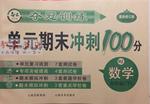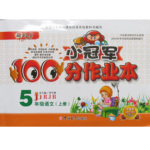
B
 Across the United States, there are several places where two independent towns grew together to become one city — but kept both their names.
Across the United States, there are several places where two independent towns grew together to become one city — but kept both their names.
Winston?Salem is one of them. It’s a mid?sized city in what’s called the plateau(high land), between the Atlantic Coast and the inland mountains in the state of North Carolina. The Winston part is a relatively new place, founded early this century. It’s home to the nation’s biggest open?air tobacco market.?
The giant R.J. Reynolds Tobacco Company’s headquarters is in Winston?Salem, and Winston is the name of one of Reynolds’best?known cigarette brands. Fast?growing Winston soon surrounded the much older town of Salem, so in 1913, people in the area voted to combine them into a single place.?
From a historical and tourist point of view, Salem, or Old Salem, as it’s called today, is the interesting and unusual part of town.?
Salem was founded in the 1700s by the Moravians. They spoke German, and their community was religiously based, with single men and single women living apart in separate dormitories. The Moravians greatly valued women’s work and brainpower. In fact, one of the nation’s oldest boarding schools for young women— the Moravians’Salem Academy founded in 1772 — is still in operation. ?
Over the years, Salem lost its Moravian character. That all changed, though, when a nonprofit group began to rehabilitate the historic area. These days Old Salem is what’s called a living history museum, with exhibits, music, and tours of 18th-century houses, taverns and Moravian dormitory buildings just seven blocks from the tallest skyscraper in Winston-Salem.?
The historic community is booming again. Just as R. J. Reynolds is taking in millions of dollars making cigarettes across town, Old Salem is generating about S| 15 million a year in tourism revenue and donations.?
61. From the passage we can know that____________.?
A. Winston-Salem is the name of a city?
B. Salem is home to the tobacco market?
C. the city Winston-alem has two names?
D. Old Salem is the name of a tobacco brand
62. It can be inferred from Paragraph 3 that__________.?
A. the two cities benefited each other?
B. Salem developed faster than Winston?
C. R.J. Reynolds Company has moved into Salem?
D. the combination meets the wishes of the people
63. The city Salem is special for its__________.?
A. boarding school B. lifestyle and tradition?
C. respect for brainpower D. religious belief
64. The underlined word “rehabilitate” in Paragraph 6 is closest in meaning to “_________”.?
A. reconstruct B. evaluate C. enlarge D. decorate?
65. What will probably be talked about in the following part? ?
A. Some other attractions in Winston-Salem. ?
B. How Winston makes profits from tourism. ?
C. Other examples of cities combined by two parts.?
D. Something about the boarding school for women.
 夺冠训练单元期末冲刺100分系列答案
夺冠训练单元期末冲刺100分系列答案 新思维小冠军100分作业本系列答案
新思维小冠军100分作业本系列答案 名师指导一卷通系列答案
名师指导一卷通系列答案科目:高中英语 来源: 题型:
Why didn't you tell me there was no meeting today? I _____ all the way here _____the heavy snow.
A. needn't have driven;through B. can't have driven;across
C. mustn't have driven;through D. shouldn't have driven;cross
查看答案和解析>>
科目:高中英语 来源:江苏省宁海外国语学校2009—2010学年高三下学期高考模拟英语试题(5) 题型:完型填空
完形填空(共20小题,每小题1.5分,满分30分)
When she was seven, we found out that Jenny had a few problems. Several ___36___ and many speech classes later, we found out that besides hearing, she also had Juvenile Rheumatoid Arthritis(幼儿类风湿性关节炎).
She could not put ___37___ on the heels of her feet, so she walked on tiptoe and when the pain became unbearable, I carried her.
All ___38___ grade school, and on into high school, Jenny suffered, yet never complained. She ___39___ a smile on her face, a song on her lips, and a(n) ___40___ and acceptance of others. I don’t remember her ever
___41___ self-pity. She ran when she could run. She played when she could play, and she danced when she could dance. And, when she could do ___42___ of these things, she took her medicine, and she waited until she ___43___.
Jenny never competed in a sport. She could not even take part in a gym class. Jenny continued to have one operation after another on her ___44___. Finally, her hearing improved to 60%, and she taught herself to ___45___ lips.
She was ___46___ popular and funny, attending every football game, and cheering the team on. She carried her pillow everywhere she went, so that she could ___47___ the pain, when she sat down. Then came her senior year. She would be considered for scholarships; however, school activities, especially ___48___, could often mean the ___49___ between receiving an award and losing out.
So Jenny came to a decision. She ___50___ the high school football coach to let her participate. She got her best friend to sign up with her. Finally the coach ___51___, saying, “If you miss one game, you are out!” So, Jenny became a member o the Garrett High School Football Team.
She carried bottles of water to her teammates. She did much preparation work for the team. She worked so actively that it ___52___ to be one of the best year for the Garrett High School Football Team, in its 25-year history.
When asked why he thought the team was winning all their games, even in the ___53___ of injury, one team member explained, “Well, when you’ve been knocked down, and you can’t seem to move, you ___54___ and see Jenny Lewis. It makes anything the rest of us may suffer seem pretty ___55___.”
36. A. trials B. examinations C. experiments D. treatments
37. A. control B. power C. strength D. pressure
38. A. through B. across C. over D. above
39. A. expressed B. wore C. took D. made
40. A. love B. admiration C. envy D. desire
41. A. speaking B. talking C. sharing D. voicing
42. A. nothing B. all C. none D. some
43. A. would B. could C. should D. might
44. A. ears B. legs C. arms D. mouth
45. A. see B. learn C. read D. hear
46. A. never B. totally C. occasionally D. seldom
47. A. struggle B. lose C. stop D. ease
48. A. grades B. relationships C. sports D. communication
49. A. importance B. difference C. chance D. choice
50. A. begged B. demanded C. required D. managed
51. A. gave out B. gave in C. held up D. held on
52. A. turned over B. turned out C. turned up D. turned in
53. A. sight B. fear C. risk D. face
54. A. looked down B. looked in C. looked up D. looked out
55. A. different B. worth C. difficult D. unimportant
查看答案和解析>>
科目:高中英语 来源:2013-2014学年浙江省高三上学期期中考试英语试卷(解析版) 题型:完型填空
When I was 8, a gentleman came to my orphanage(孤儿院)and taught us how to do woodworking projects.
I remember my first project—a small table. I was so of it that I looked upon it as if I had created a(an) . It was absolutely beautiful and it had taken me six weeks to it. I could hardly wait to give it to Mother Winters as a . She was the head mistress of our orphanage, who was always with us.
As the tables were not dry from the clear coating, the man told us to wait a few days before taking them to our dormitories. But I was just so and happy that I couldn’t wait. I dashed out like a , carrying my table, smiling from ear to ear.
When I reached the dormitory I placed the little table beside my bed. I was it when Mother Winters entered. She walked over to the table. Running her hand it, she noticed that it was still wet.
“Were you to bring this home?” she asked.
“No, ma’am,” I with my head down.
She ordered me to throw the table out and so I did. After she left, I immediately opened the door to get it back. There was stuck all over. I brushed and cried, but it would not come off.
I hid the table in my closet and never it. A year later while cleaning up, I gave the table to Mother Henderson, my houseparent(宿管员), thinking that she would it away.
Thirty years later at a reunion, I that Mother Henderson was living nearby, so I drove up to see her. We talked cheerfully for long. As I was about to leave, she asked me to come down to her to get something important. I followed her into a dark corner. She picked something up. she turned around, I could see that she was holding a little table.
Mother Henderson kept the little table that I had given up for lost so long ago.
Today, I look at that table with bittersweet memories but full of to Mother Henderson, who kept it for a young orphan who tried very hard to .
1.A. tired B. ashamed C. proud D. aware
2.A. award B. wonder C. record D. product
3.A. design B. invent C. paint D. complete
4.A. gift B. reward C. prize D. souvenir
5.A. satisfied B. strict C. patient D. angry
6.A. upset B. amazed C. confident D. excited
7.A. thief B. hero C. sword D. flash
8.A. drying B. observing C. admiring D. hiding
9.A. into B. across C. above D. after
10.A. supposed B. embarrassed C. encouraged D. determined
11.A. agreed B. sighed C. whispered D. argued
12.A. dirt B. glue C. paint D. wood
13.A. removed B. touched C. shook D. split
14.A. put B. give C. take D. throw
15.A. learned B. expected C. remembered D. recommended
16.A. bathroom B. balcony C. basement D. bedroom
17.A. curiously B. unwillingly C. doubtfully D. worriedly
18.A. Before B. Since C. As D. Until
19.A. admiration B. gratitude C. sympathy D. regret
20.A. adapt B. study C. perform D. please
查看答案和解析>>
科目:高中英语 来源:2014届浙江嘉兴第一中学高三上期摸底英语卷(解析版) 题型:阅读理解
As Rosalie Warren stood at the mailbox in the lobby of her apartment building in May 1980, she shared the anxiety of many other college seniors. In her hand was an envelope containing her final grades. As she nervously opened it, Warren wondered whether her hundreds of hours of studying had paid off.
They had.
“I got five ‘A’s,” she still recalls with elation. “I almost fell on the floor!”
Warren would graduate from Suffolk University with a bachelor of science degree in philosophy and history at age 80.Three years later, at age 83, she would receive her second degree from Suffolk, a master’s in education.
Now, with both diplomas proudly displayed in her apartment, Warren is not finished with learning. Now 93,she continues for her 18th year at Suffolk under a program that allows persons 65 and over to attend classes tuition free. “It’s my life to go to school, to enjoy being in an academic atmosphere,” she says. “That’s what I love.”
Warren was born Rosalie Levey on Aug.29, 1900. Two years after she entered high school, her father died. Warren had to leave school for factory work to help support her family’s 10 children. Warren describes herself as a “person who always liked school,” and she says the move “broke my heart completely because I couldn’t finish high school.”
In the end, however, “I went to school nights,” she recalls. “Any place I could find an outlet of learning and teaching, I was there.”
A short time later, her mother became ill, and Warren had to care for her, once again putting her education on hold.
Finally, in 1921, her mother, now recovered, drew from her saving to send Warren to Boston University for two years to study typing, stenography, and office procedures.
Those courses helped Warren gain several long-term office positions over the next 60 years, but her great desire “to be in the academic field” continued.
In 1924, she married Eugene Warren, and seven years later, her daughter, Corinne, was born. In 1955, by then a widow and a grandmother, Warren took a bus tour across the United States that was to last nine months. She said she wanted to see “things you never see in the West End.”
When she returned home, she took a bookkeeping position and also enrolled in courses in philosophy, sociology
And Chinese history. free program for senior citizens.” I was at the registrar’s office the very next day.”she recalls. At first ,she took one or two courses at a time , but encouraged by her professors , she enrolled as a
In 1975, when she was 75, Warren learned from a neighbor about Suffolk University’s tuition- degree candidate.
“I had not studied for so many years,” she says, “but I was determined.” For the next four years, Warren, who calls herself a “student of philosophy,” worked toward her degree.
Nancy Stoll, dean of students at Suffolk, says Warren is “an interesting role model for our younger students---that learning is a lifetime activity….She is genuinely enthusiastic about being here, and that permeates (散发) her activities and is contagious (传染的) to students and faculty.”
1.What does the word elation mean in the sentence “I got fives ‘A’s”, she still recalls with elation”?
A. Great happiness B. Great surprise C. Great pride D. Great honor
2.How old was Warren when she got her first college degree?
A. She was 79 B. She was 23 C. She was 80 D. She was 75
3.What kind of work did she do for 60 years?
A. Studying B. Factory work C. Typing D. Office work
4.Which statement can be inferred from the underlined sentences?
A. Because Warren needn’t pay her tuition, she went to study at Suffolk University
B. At first Warren had to pay for her courses at Suffolk University
C. Most of the students at Suffolk University are older than 65
D. Suffolk University encourages older people to take courses
5.It can be inferred from this passage that Rosalie Warren _______.
A. came from a wealthy family B. didn’t like working in an office
C. put her family before her education D. didn’t like her family very much
6.What is the main topic of this passage?
A. Rosalie Warren’s family
B. Rosalie Warren’s life
C. Rosalie Warren’s education
D. Rosalie Warren’s studying at Suffolk University
查看答案和解析>>
科目:高中英语 来源:20102011学年度宁夏高一下学期期中考试英语题 题型:完型填空
完形填空(共20小题;每小题1.5分,满分30分)
阅读下面短文,掌握其大意,然后从36—55各题所给的四个选项(A、B、C和D)中,选出最佳选项。
On a cold November afternoon, my mother and I were walking home from a pizza store. We were dressed warmly and equipped with the rented video we had been dying to 36 . I was feeling a little 37 , as I was carrying our shopping,bags of snacks and the 38 .They were so heavy that I decided to 39 some things. So I started to walk towards the garbage can 40 I noticed a poor man walking his bike out of the restaurant in front of us. He _41 a paper bag with his dirty hand. He headed over to another nearby garbage can and started _42 it. I suddenly felt very 43 because I was about to do away with a new drink just 44 it was heavy.
I knew this man would take all he could 45 , so I walked up to him and 46 the drink and some snacks to him. The man looked up 47 and took what I gave him. A huge smile spread 48 his face and this caused me to feel indescribable 49 . I felt like I 50 be happier with myself, but then he said, “This is my son’s lucky day!”
With that, he 51 me happily and started off on his bike. I even heard him 52 a song as he rode away. I got a warm feeling inside and I knew I had done something good for the man and his family. I now understand what is 53 by the saying “Giving is getting”.
Since then, every time I have the 54 to do something nice, the picture of the man’s happiness caused by my small gift appears in my mind. This is the 55 of charity.
1. A. watch B. look C. see D. listen
2. A. upset B. happy C. tired D. excited
3. A. video B. books C. pizza D. clothes
4. A. send off B. throw away C. put away D. send out
5. A. after B. when C. before D. while
6. A. owned B. presented C. held D. sought
7.A. going into B. finding out C. looking through D. searching for
8.A. stupid B. guilty C. disappointed D. happy
9. A. since B. for C. because D. when
10.A. get B. search C. hear D. see
11.A. dropped B. kept C. turned D. handed
12. A. in silence B. in return C. in surprise D. in a hurry
13.A. around B. across C. over D. to
14. A. regret B. satisfaction C. failure D. curiosity
15.A. couldn’t B. shouldn’t C. needn’t D. mustn’t
16. A. smiled B. told C. stared at D. thanked
17. A. singing B. sounding C. listening D. making
18. A. referred B. said C. meant D. spoken
19. A. time B. chance C. idea D. effort
20. A. power B. effect C. strength D. mystery
查看答案和解析>>
湖北省互联网违法和不良信息举报平台 | 网上有害信息举报专区 | 电信诈骗举报专区 | 涉历史虚无主义有害信息举报专区 | 涉企侵权举报专区
违法和不良信息举报电话:027-86699610 举报邮箱:58377363@163.com